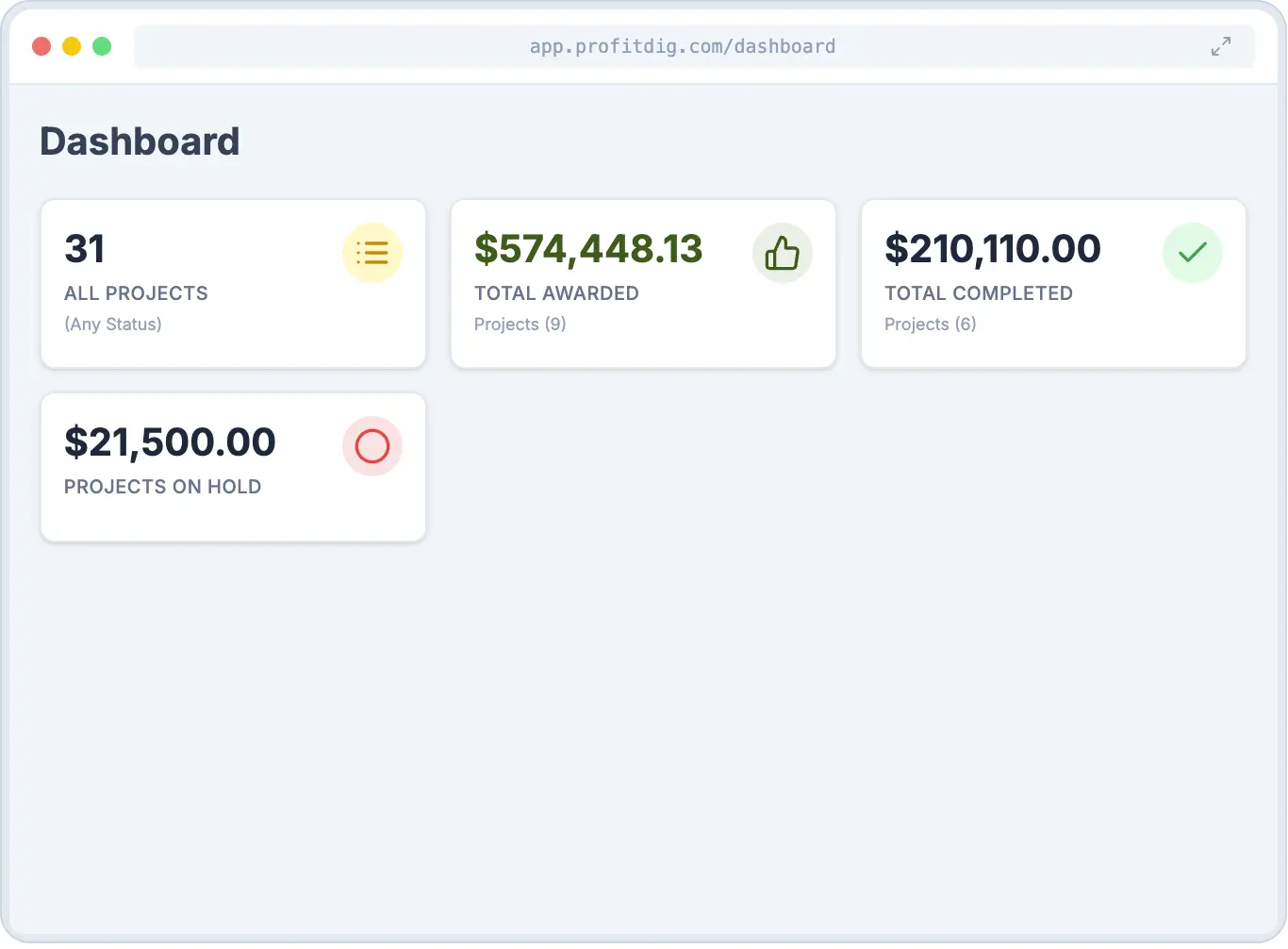$1.3+ Billion in Bids Created
Stop Guessing.
Start Profiting.
The easiest way for construction contractors to bid jobs in minutes, track costs in real-time, and eliminate the unknown.
30-Day Money Back Guarantee• Cancel anytime

Manage your bid items faster.
Create, organize, and reuse your bid items and headers. Build a master database that speeds up every future proposal you create.
- Standardize your bidding language
- Quickly search and insert items
- Eliminate repetitive manual entry
Bid Items & Headers
ID
Name
1001
Erosion Control
2000
DOT
2001
Grading
3001
Storm Drainage
4001
Domestic Water Line
5001
Sanitary Sewer
6001
Fire Water
7001
Electrical
8001
Demolition
Showing 9 items
| Identifier | Quantity | Unit | Total | ||
|---|---|---|---|---|---|
| B Underground | $20,646.34 | ||||
| LI Standard Silt Fence | 1200 | [LF] | $4,839.08 | ||
Bid in minutes, not hours.
Stop reinventing the wheel for every proposal. Clone previous successful bids, use your saved item database, and generate professional PDFs instantly.
- Instant markup calculations
- One-click PDF generation
Don't take our word for it.
DG Construction Inc.
"Since I’ve been using ProfitDig, my margins have increased and I have been making more money. It just works for me. It’s simplistic. I have used other estimating platforms in the past and ProfitDig is just better."
Dylan Gandy
Owner
Simple, transparent pricing
No hidden fees. No long-term contracts. Cancel anytime.
Solo
$149/mo
Start Risk-Free- 1 User
- Unlimited Projects
- Profit & Loss Reporting
- Project Notes & File Storage
Most Popular
Team
$199/mo
Start Risk-Free- 3 Users
- Unlimited Projects
- Profit & Loss Reporting
- Project Notes & File Storage
Business
$299/mo
Start Risk-Free- 10 Users
- Unlimited Projects
- Profit & Loss Reporting
- Project Notes & File Storage
- Onboarding Assistance
Frequently Asked Questions
Is there really no contract?
Absolutely. You pay month-to-month and can cancel at any time. We believe our product should earn your business every month.
How does the money back guarantee work?
If you aren't satisfied within the first 30 days, simply email us and we will refund your first month's payment in full. No questions asked.
Is my data secure?
Yes. We use bank-level 256-bit encryption to protect your data. Your information is backed up daily and stored on secure servers.
Does ProfitDig work on Mac and Mobile?
Yes! ProfitDig is 100% cloud-based, meaning it works on any device with a web browser, including iPads, Android tablets, Macs, and Windows PCs.
Is there a limit on projects?
No. You can bid and manage an unlimited number of projects. We don't believe in penalizing you for growing your business.